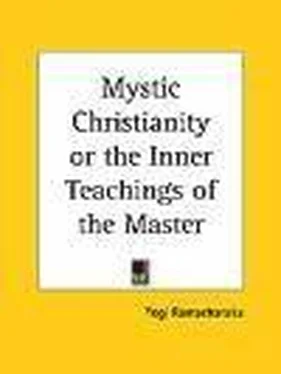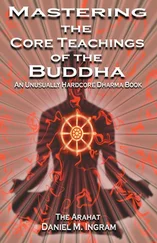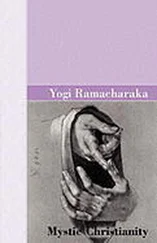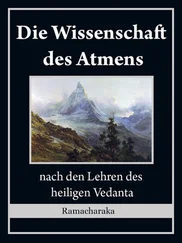Ignatius also speaks of the High Priest or Hierophant, of whom he asserts that he was the one "to whom the holy of holies has been committed, and who alone has been entrusted with the secrets of God." (_Epistles of Ignatius._)
St. Clement of Alexandria was a mystic of high rank in the Inner Circle of the Church. His writings are full of allusions to the Christian Mysteries. He says among other things that his writings were "a miscellany of Gnostic notes, according to the time philosophy," which teachings he had received from Pontaemus, his instructor or spiritual teacher. He says of these teachings:
"The Lord allowed us to communicate of those divine Mysteries and of that holy light, to those who are able to receive them. He did not certainly disclose to the many what did not belong to the many; but to the few to whom He knew that they belonged, who were capable of receiving and being moulded according to them. But secret things are intrusted to speech, not to writing, as is the case with God. And if one say that it is written, 'There is nothing secret which shall not be revealed, nor hidden, which shall not be disclosed,' let him also hear from us, that to him who hears secretly, even what is secret shall be manifested. This is what was predicted by this oracle. And to him who is able secretly to observe what is delivered to him, that which is veiled shall be disclosed as truth; and what is hidden to the many shall appear manifest to the few. The mysteries are delivered mystically, that what is spoken may be in the mouth of the speaker; rather not in his voice, but in his understanding. The writing of these memoranda of mine, I well know, is weak when compared with that spirit full of grace, which I was privileged to hear. But it will be an image to recall the archetype to him who was struck with the Thyrsus."
(We may state here that the Thyrsus was the mystic-wand carried by the Initiates in the Mystic Brotherhoods-the Initiate being first tapped with it, and then receiving it from the Hierophant, at the ceremony of formal Initiation.) Clement adds:
"We profess not to explain secret things sufficiently-far from it-but only to recall them to memory, whether we have forgot aught, or whether for the purpose of not forgetting. Many things, well I know, have escaped us, through length of time, that have dropped away unwritten. There are then some things of which we have no recollection; for the power that was in the blessed men was great."
"There are also some things which remain unnoted long, which have now escaped; and others which are effaced, having faded away in the mind itself, since such a task is not easy to those not experienced; these I revive in my commentaries. Some things I purposely omit, in the exercise of a wise selection, afraid to write what I guarded against speaking; not grudging-for that were wrong-but fearing for my readers lest they should stumble by taking them in a wrong sense; and, as the proverb says, we should be found 'reaching a sword to a child.' For it is impossible that what has been written should not escape, although remaining published by me. But being always revolved, using the one only voice, that of writing, they answer nothing to him that makes inquiries beyond what is written; for they require of necessity the aid of someone, either of him who wrote or of someone else, who walked in his footsteps. Some things my treatise will hint; on some it will linger; some it will merely mention. It will try to speak imperceptibly, to exhibit secretly, and to demonstrate silently." (_The Stromata of St. Clement._)
St. Clement, in the same work from which the above quotation was taken, has a chapter entitled "The Mysteries of the Faith, not to be Divulged to all." In it he states that inasmuch as his writings might be seen by all men, the unwise as well as the wise, "it is requisite, therefore, to hide in a Mystery the wisdom spoken, in which the Son of God is taught." He then adds, "For it is difficult to exhibit the really pure and transparent words to swinish and untrained hearers. For scarcely could anything which they could bear be more ludicrous than these to the multitude; nor any subjects on the other hand more admirable or more inspiring to those of noble nature. But the wise do not utter with their mouths what they reason in council. 'But what ye hear in the ear,' said the Lord, 'proclaim upon the houses; bidding them receive the _secret traditions of the true knowledge_, and expound them aloft and conspicuously; and as we have said in the ear, so to deliver them to whom it is requisite; but _not enjoining us to communicate to all without distinction_ what is said to them in parables. But there is only a delineation in the memoranda, which have the truth sown sparse and broadcast, that it may escape the notice of those who pick up seeds like jackdaws; but when they find a good husbandman, each of them will germinate and will produce corn."
"Those who are still blind and dumb, not having understanding, or the undazzled and keen vision of the contemplative soul, must stand outside of the divine choir. Wherefore, in accordance with the method of concealment, the truly sacred Word, truly divine and most necessary for us, deposited in the shrine of truth, was by the Egyptians indicated by what were called among them _adyta_, and by the Hebrews 'the veil.' Only the consecrated were allowed access to them. For Plato also thought it not lawful for 'the impure to touch the pure.' Thence the prophecies and oracles are spoken in enigmas, and to the untrained and uninstructed people. Now, then, it is not wished that all things should be exposed indiscriminately to all and sundry, or the benefits of wisdom communicated to those who have not even in a dream been purified in soul, for it is not allowable to hand to every chance comer what has been procured with such laborious efforts. Nor are the Mysteries of the Word to be expounded to the profane. The Mysteries were established for the reason that it was more beneficial that the holy and the blessed contemplation of realities be conceded. So that, on the other hand, then, there are the Mysteries which were hid till the time of the apostles, and were delivered by them as they received from the Lord, and, concealed in the Old Testament, were manifested to the saints. And on the other hand, there is the riches of the glory of the mysteries of the Gentiles, which is faith and hope in Christ. Instruction, which reveals hidden things, is called Illumination, as it is the teacher only who uncovers the lid of the ark." (_The Stromata of St. Clement_.)
St. Clement also quotes approvingly the saying of Plato, that: "We must speak in enigmas; that should the tablet come by any mischance on its leaves either by sea or land he who reads may remain ignorant." He also says, concerning certain Gnostic writings:
"Let the specimen suffice to those who have ears. For it is not required to unfold the mystery, but only to indicate what is sufficient for those who are partakers in knowledge to bring it to mind."
We have quoted freely from St. Clement, for the purpose of showing that he, a man in a very exalted position in the Early Christian Church, recognized, and actually taught, the Inner Teachings, or Secret Doctrine of Mystic Christianity-that the Early Christian Church was an organization having a Mystic Centre for the few, and Common Outer for the multitude. Can there be any doubt of this after reading the above words from his pen?
But not only St. Clement so wrote and taught, but many others in authority in the Early Christian Church likewise voiced their knowledge of, and approval in, the Inner Teachings. For example, Origen, the pupil of St. Clement, a man whose influence was felt on all sides in the early days of the Church. Origen defended Christianity from the attacks of Celsus, who charged the Church with being a secret organization which taught the Truth only to a few, while it satisfied the multitude with popular teachings and half-truths. Origen replied that, while it was true that there were Inner Teachings in the Church which were not revealed to the general public, still the Church, in that respect, was but following the example of all teachers of Truth, who always maintained an esoteric side of their teachings for those fitted to participate in them, while giving the exoteric side to the general body of followers. He writes:
Читать дальше












